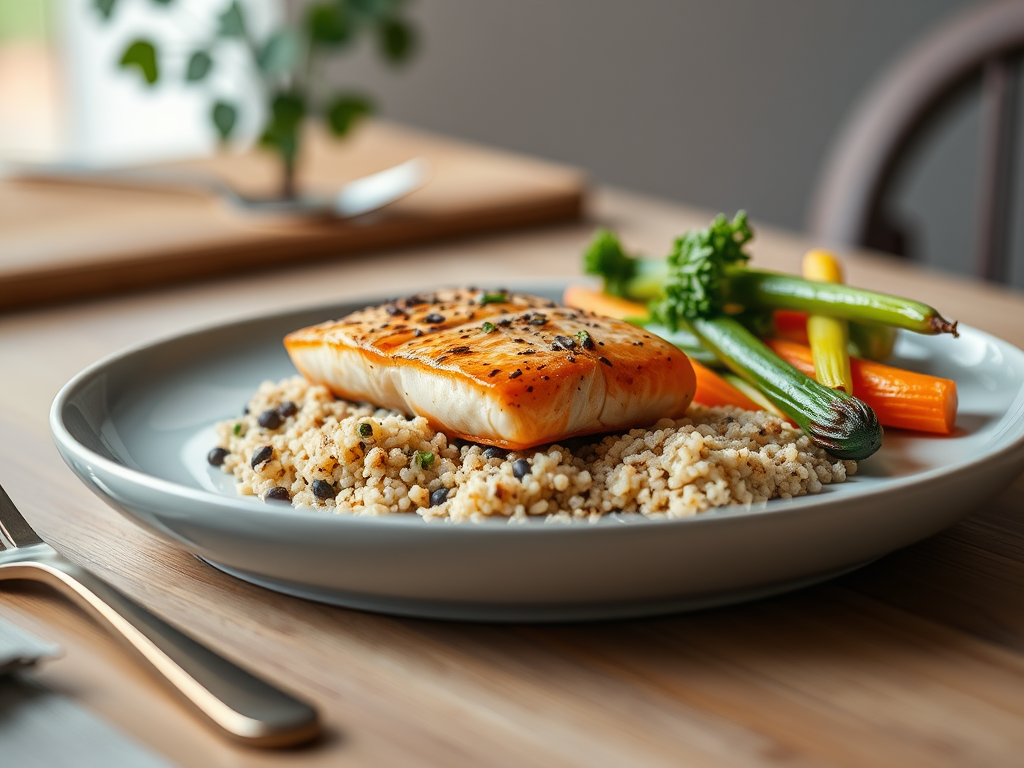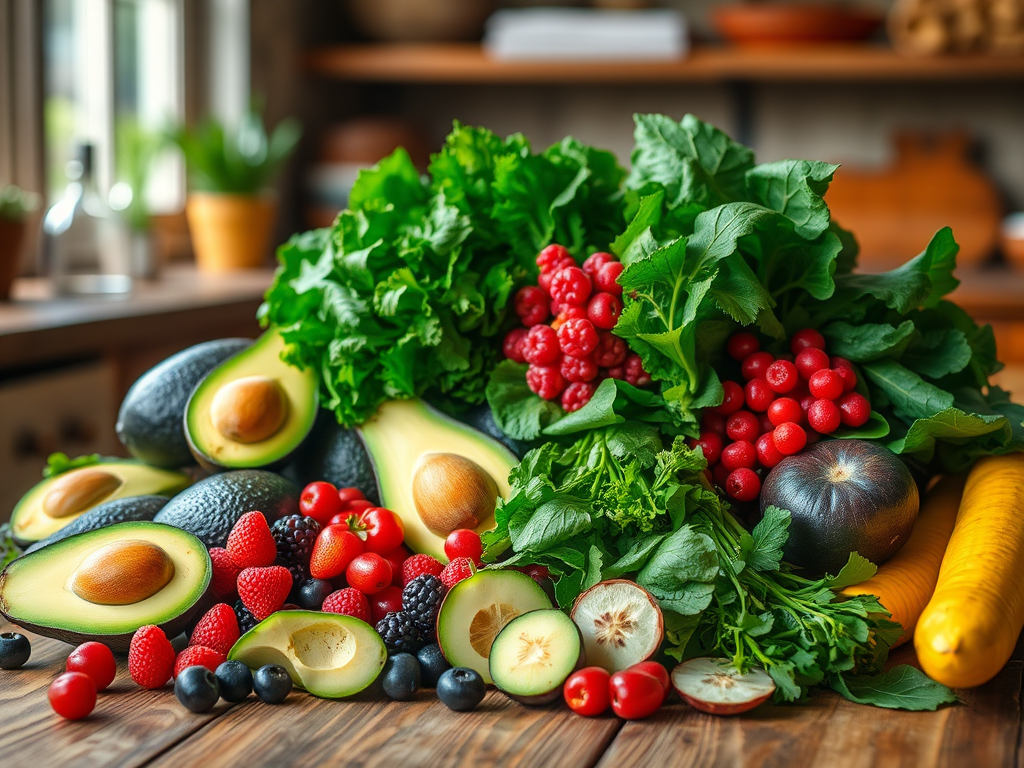In the quest for flawless and smooth skin, we often find ourselves inundated with skincare routines, expensive creams, and an array of beauty products. However, the real secret may lie in our everyday meals. The connection between diet and skin health is profound, often overlooked, but critically important. Our skin, being the largest organ, reflects our overall health, including what we consume. By feeding our body the right nutrients, we can reveal a radiant glow that comes from within. The right diet can not only improve your skin’s texture and elasticity but also combat common issues like dryness, inflammation, and acne. Let’s delve into the world of nutrition and discover how dietary choices can lead to smoother, healthier skin.
Key Nutrients for Smooth Skin

Just as plants require sunlight and rich soil to thrive, our skin needs specific nutrients to remain vibrant and healthy. Incorporating a variety of vitamins and minerals into daily meals can foster an environment for skin rejuvenation. Key nutrients such as vitamins A, C, and E, along with minerals like zinc and selenium, play vital roles in cell regeneration and protection against environmental damage. These elements help to support collagen production, maintain skin elasticity, and guard against harmful free radicals.
Vitamins and Minerals
- Vitamin C: Promotes collagen synthesis and aids in skin repair.
- Vitamin E: Acts as an antioxidant, protecting the skin from oxidative stress.
- Vitamin A: Essential for skin cell production and repair.
- Zinc: Supports healing and regulates oil production.
- Selenium: Defends against sun damage and inflammation.
In addition to these vitamins, don’t underestimate the power of antioxidants. Antioxidants combat the effects of free radicals that contribute to skin aging. Incorporating foods rich in antioxidants can nurture your skin from the inside out, improving overall skin health.
Antioxidants and Their Benefits
Antioxidants are a warrior’s shield against the skin aggressors we encounter every day. Common sources include berries, green leafy vegetables, nuts, and dark chocolate. These foods are not only delicious but also potent allies in your skincare quest. By loading up on these nutrients, you not only enhance your skin’s appearance but also promote overall health.
| Food | Benefits for Skin |
|---|---|
| Blueberries | Rich in antioxidants that help reduce signs of aging. |
| Spinach | Contains vitamins A and C which boost skin health. |
| Walnuts | High in omega-3 fatty acids which hydrate the skin. |
| Sweet Potatoes | Packed with beta-carotene, acting as a natural sunblock. |
Foods to Incorporate for Smooth Skin

In the journey to achieve smoother skin, it’s essential to know which foods to include in your diet. Incorporating a variety of skin-friendly foods can significantly impact your skin’s texture and clarity. Focus on hydration; consuming water-rich foods can do wonders for skin health. Fruits and vegetables that are high in water content alleviate dryness and promote a dewy glow.
Hydrating Foods
- Cucumbers: Composed of 95% water, they hydrate the skin.
- Watermelon: Refreshing and hydrating, perfect for summertime.
- Oranges: Packed with vitamin C and full of water for hydration.
Also, don’t overlook the power of superfoods that can elevate your skin health to another level. These foods are nutrient-dense and packed with beneficial compounds that can work wonders for your complexion.
Skin-friendly Superfoods
- Avocados: Rich in healthy fats and vitamins, perfect for moisturization.
- Legumes: High in fiber and protein, supporting the body’s detox process.
- Salmon: A great source of omega-3 fatty acids for maintaining skin barrier function.
Foods to Avoid for Better Skin
While knowing what to eat for smooth skin is vital, understanding what to avoid is equally important. Certain foods have been linked to skin problems, and their elimination can lead to significant improvements. Processed foods, sugars, and high-fat dairy products can aggravate conditions like acne and lead to uneven skin tone.
Processed Foods and Sugars
- The excessive sugar found in soda and candy promotes inflammation.
- Processed snacks often contain harmful preservatives that can affect hormone levels.
- High-fat dairy may contribute to hormonal fluctuations and breakouts.
Moreover, high sodium foods can result in puffiness and dryness, two conditions that no one desires for their skin. Swapping out processed options for whole foods can lead to remarkable changes.
High Sodium Foods
Salt is often a hidden culprit in skin health. Foods like chips and canned products can lead to dehydration, negatively impacting your skin’s elasticity. To combat this, try replacing high-sodium options with fresh herbs and spices.
Lifestyle Changes to Complement Diet
To achieve and maintain smooth skin, it’s essential to pair a healthy diet with lifestyle changes. Drinking sufficient water is key, as hydration directly influences your skin’s moisture levels. Aim for a minimum of 8 glasses per day, adjusting based on your activity levels.
Additionally, ensuring you get quality sleep is essential. Lack of sleep can result in dark circles and a dull complexion. Coupled with proper sun protection, these lifestyle choices create a holistic approach to skin health. Consider regular exercise; it boosts circulation, thereby increasing nutrient flow to the skin.
Conclusion
In conclusion, achieving smooth skin is a multifaceted journey that integrates wise dietary choices and mindful lifestyle habits. Emphasizing nutrient-rich foods and avoiding skin-aggravating substances can create significant positive changes in the texture and appearance of your skin. Remember, the roadmap to radiant skin is not only paved with good skincare products but also with a solid nutritional foundation. The synergy between a balanced diet and a healthy lifestyle is essential for unlocking your skin’s natural brilliance. A steadfast commitment to these principles will not only benefit your skin but also enhance your overall health and well-being.
Frequently Asked Questions
- How long does it take to see improvements in skin texture from dietary changes? Dietary changes can show results in skin texture within a few weeks, though significant changes may take a few months.
- Can I achieve smooth skin through diet alone? While diet plays a crucial role in skin health, it is most effective when combined with proper skincare and healthy lifestyle habits.
- Are there specific diets recommended for better skin? Diets rich in fruits, vegetables, whole grains, healthy fats, and lean proteins are generally considered best for skin health.
- How much water should I drink for healthy skin? Drinking at least 8 glasses (64 ounces) of water per day is generally recommended, but individual needs may vary based on activity level and climate.
- Are supplements necessary for skin health? While a well-balanced diet is typically enough to provide necessary nutrients, some individuals may benefit from supplements—consult with a healthcare provider before starting any.



